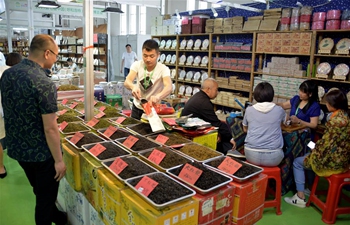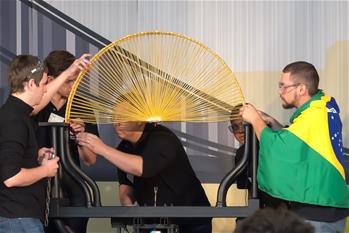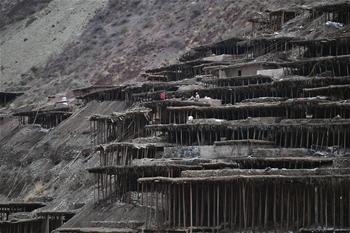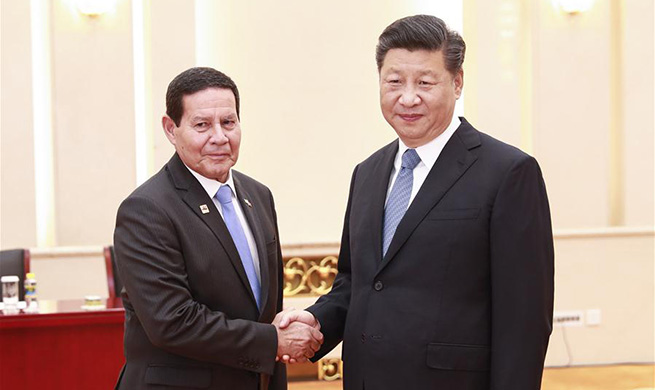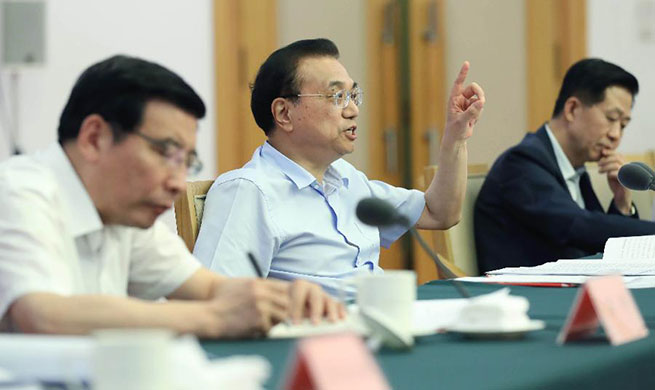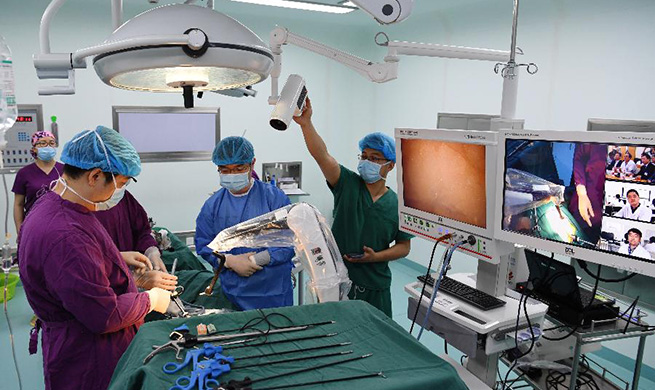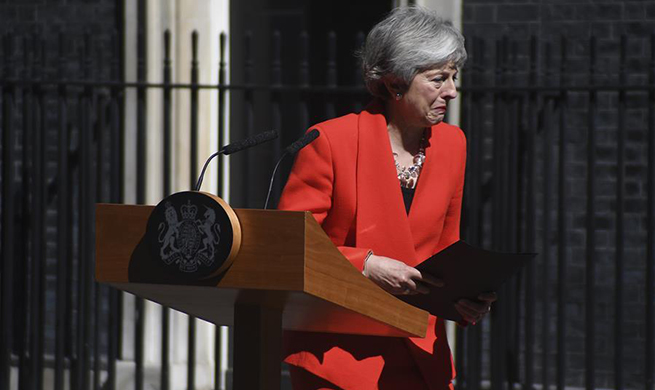PARIS, May 24 (Xinhua) -- As some European citizens have already cast their ballots to elect new European parliament, the elections looked tighter in France, the bloc's second biggest power, with a poll showing only one percentage point separating the top two parties, suggesting that the contest results remain open till Sunday night, an analyst said on Friday.
"The balance of power is slightly favoring the National Rally (RN), but it is ahead the Republic on the Move (LREM) with a quite small gap. That makes hard to predict who will emerge first," Erwan Lestrohan, an analyst at BVA opinion pollster told Xinhua.
"With a very weak margin of error, how the finish of the race will be, is unknown," he added in a interview.
In a BVA poll released on Wednesday, the National Rally's list headed by 23-year-old Jordan Bardella gained ground, overtaking the ruling party list, fronted by ex-European Affairs Minister Nathalie Loiseau whose campaign was tainted by a series of missteps.
The pollster found that the RN which wants to stop immigration and globalization is on course to win 23 percent of the voting intentions, one percentage point separating it from the LREM.
"Even if the NationaL Rally tops the votes, it will be a symbolic victory. The first point that can indicate the far-right's victory is how much it has advanced (compared with)the LREM list," Lestrohan said.
"It's the extent of the margin separating the two lists that will tell us if we are facing a disavowal of President Emmanuel Macron's policy or we are just witnessing an electoral competition," he added.
The outcome of the race between the strict-opposite parties, reformist and populist, according to Lestrohan, will show how well the eurosceptics do and if they have boosted their electoral performance since 2014 ballots.
But, "Will that create troubles for Macron? For the moment it's difficult to make a direct link between the European elections and the perception of the national situation. They do not indicate anything tangible on domestic affairs as people do not vote in European poll as they do in national one."
"What we are going to observe is the French's support of Macron's European project but we will not deduce anything else," he added.
As nationalism has spread into European neighbors, Macron has cast the due election as a battle between his progressive ideas and what he sees as promotion of nationalist or anti-EU agendas that could, according to him, would put France's interests and that of the European bloc on edge.
To improve chances of his party to secure higher number of seats to enjoy a strong say to define the bloc's future policy, he has been involved into the party's campaign to re-energize supporters and court undecided people in an election traditionally marked by low turnout.
According to BVA analyst, 46 percent to 52 percent of those polled were expected to vote on May 26, up from 42 percent in last European ballots five years ago.
Meanwhile," it is rather difficult to forecast what will happen on D-day as there is potential volatility of election choices. Four out of ten voters said they are still uncertain, notably those aged below 50 years and workers leaving in small villages," Lestrohan said.
He noted that an abstention could benefit the political forces that had mobilized the most their supporters who are the most interested in the European issues such as the LREM ruling party and his rival far-right RN.
However, low turnout would be likely to penalize other parties, including the traditional right-wing "The Republicans" and the Socialist Party whose efforts to revive their camps after their defeat in 2017 presidential elections were in vain, he added.

